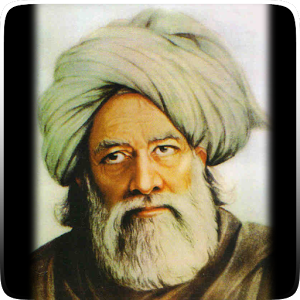
Story
By:Varsh shah
Bulleh Shah is believed to have been born in 1680, in the small village of Uch, Bahawalpur, Punjab, now in Pakistan. His ancestors had migrated from Bukhara in modern Uzbekistan.
When he was six months old, his parents relocated to Malakwal. There his father, Shah Muhammad Darwaish, was a preacher in the village mosque and a teacher. His father later got a job in Pandoke, about 50 miles southeast of Kasur. Bulleh Shah received his early schooling in Pandoke, and moved to Kasur for higher education. He also received education from Maulana Mohiyuddin. His spiritual teacher was the eminent Sufi saint, Shah Inayat Qadiri.
Little is known about Bulleh Shah’s direct ancestors, except that they were migrants from Uzbekistan. However, Bulleh Shah’s family was directly descended from the Prophet Muhammad(PBUH).
–
Career
A large amount of what is known about Bulleh Shah comes through legends, and is subjective; to the point that there isn’t even agreement among historians concerning his precise date and place of birth. Some “facts” about his life have been pieced together from his own writings. Other “facts” seem to have been passed down through oral traditions.
Bulleh Shah practiced the Sufi tradition of Punjabi poetry established by poets like Shah Hussain (1538 – 1599), Sultan Bahu (1629 – 1691), and Shah Sharaf (1640 – 1724).
Bulleh Shah lived in the same period as the famous Sindhi Sufi poet , Shah Abdul Latif Bhatai (1689 – 1752). His lifespan also overlapped with the legendary Punjabi poet Waris Shah (1722 – 1798), of Heer Ranjha fame, and the famous Sindhi Sufi poet Abdul Wahad (1739 – 1829), better known by his pen-name, Sachal Sarmast (“truth seeking leader of the intoxicated ones”). Amongst Urdu poets, Bulleh Shah lived 400 miles away from Mir Taqi Mir (1723 – 1810) of Agra.
–
Poetry Style
The verse form Bulleh Shah primarily employed is called the Kafi, a style of Punjabi, Sindhi and Siraiki poetry used not only by the Sufis of Sindh and Punjab, but also by Sikh gurus.
Bulleh Shah’s poetry and philosophy strongly criticizes Islamic religious orthodoxy of his day.
–
A Beacon of Peace
Bulleh Shah’s time was marked with communal strife between Muslims and Sikhs. But in that age Baba Bulleh Shah was a beacon of hope and peace for the citizens of Punjab. While Bulleh Shah was in Pandoke, Muslims killed a young Sikh man who was riding through their village in retaliation for murder of some Muslims by Sikhs. Baba Bulleh Shah denounced the murder of an innocent Sikh and was censured by the mullas and muftis of Pandoke. Bulleh Shah maintained that violence was not the answer to violence.Bulleh Shah also hailed Guru Tegh Bahadur as a ghazi (Islamic term for a religious warrior) and incurred the wrath of the fanatic muslims at the time.
Banda Singh Bairagi was a contemporary of Bulleh Shah. In retaliation for the murder of Guru Gobind Singh’s two sons by Aurangzeb, he sought revenge by killing common Muslims. Baba Bulleh Shah tried to convince Banda Singh Bairagi to renounce his campaign of revenge. Bulleh Shah told him that the same sword which fell upon Guru Gobind Singh’s sons and innocent Sikhs also fell upon innocent Muslims. Hence killing innocent Muslim was not the answer to Aurangzeb’s reign of oppression.
–
Humanist
Bulleh Shah’s writings represent him as a humanist, someone providing solutions to the sociological problems of the world around him as he lives through it, describing the turbulence his motherland of Punjab is passing through, while concurrently searching for God. His poetry highlights his mystical spiritual voyage through the four stages of Sufism: Shariat (Path), Tariqat (Observance), Haqiqat (Truth) and Marfat (Union). The simplicity with which Bulleh Shah has been able to address the complex fundamental issues of life and humanity is a large part of his appeal. Thus, many people have put his kafis to music, from humble street-singers to renowned Sufi singers like the Waddali Brothers, Abida Parveen and Pathanay Khan, from the synthesized techno qawwali remixes of UK-based Asian artists to the rock band Junoon.
Bulleh Shah’s popularity stretches uniformly across Hindus, Sikhs and Muslims, to the point that much of the written material about this philosopher is from Hindu and Sikh authors.
–
Modern Renditions
In the 1990s Junoon, Asia’s biggest rock band from Pakistan, rendered such poems as Aleph (Ilmon Bas Kareen O Yaar) and Bullah Ki Jaana. In 2004, Rabbi Shergill successfully performed the unlikely feat of turning the abstruse metaphysical poem Bullah Ki Jaana into a Rock/Fusion song, which became hugely popular in India and Pakistan. The 2007 Pakistani movie Khuda Kay Liye includes Bulleh Shah’s poetry in the song Bandeya Ho. A 2008 film, ‘A wednesday’, had a song, “Bulle Shah, O yaar mere” in its soundtrack. In 2009, Episode One of Pakistan’s Coke Studio Season 2 featured a collaboration between Sain Zahoor and Noori, “Aik Alif“.




